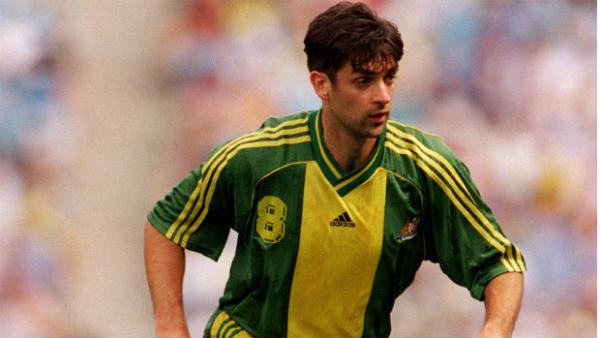Last Thursday Football Australia announced the Subway Socceroos’ ‘Team of the Century’ before the Green and Gold’s final match prior to the FIFA World Cup Qatar 2022™.
Twenty-three players, three assistant coaches and a head coach were voted by fans and historians as part of the Centenary Celebration.
Indeed, 2022 marks 100 years since Australia’s first men’s ‘A’ international took place in Dunedin.
And with 100 years of history, attempting to select a squad of 23 obviously meant some great Australian footballers were unfortunately not going to make the final list.
But it would be remiss of us not to include the honourable mentions that equally played a massive part in the story that is Australian football, and narrowly missed out after the voting process was completed.

Coaches
Frank Arok
In early 1983, Arok was appointed as the Head Coach of Australia’s men’s national football team – a post he would hold for seven years through to early 1990. During his tenure as boss, Arok managed Australia in 89 international matches all told, with 48 of these fixtures being ‘A’ internationals. Arok was also an inaugural inductee into Football Australia’s Hall of Fame in 1999.
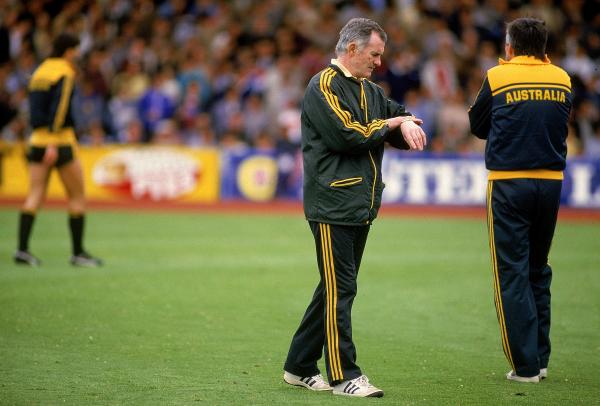
Les Scheinflug AM
Les Scheinflug migrated to Australia in 1955 with his mother. Two years later he joined Sydney club Prague. Scheinflug spent seven of his 12 seasons there as captain. Between 1964 and 1968 he made 11 appearances in the Australian team, mostly as captain and scored four goals, including Australia’s first in a World Cup qualifier. Upon retirement from playing in 1972, Scheinflug took up coaching and was assistant national coach to Rale Rasic, Rudi Gutendorf and Eddie Thomson, and national coach from 1981 to 1983. He was a 1999 inductee in the Football Australia Hall of Fame.
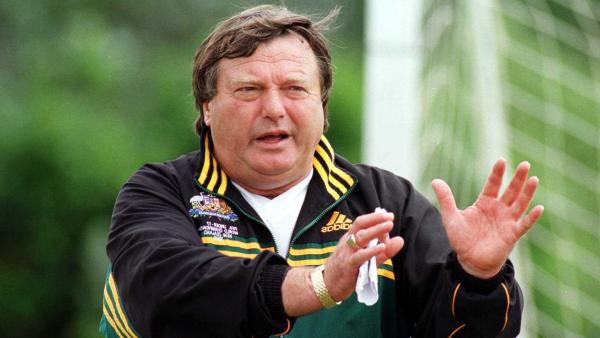
Joe Vlasits
Vlasits came to Australia from Hungary in 1947. He had a big input in the formation of National Youth teams before becoming national team coach in the late 60s. Vlasits took charge of a youthful Australian side that secured the nation's first ever trophy in 1967: the Quoc Khanh Cup in war-torn Vietnam - a tour that is credit by many as the 'birth of the Socceroos spirit' and developed the core of a squad that went on to qualify for the 1974 World Cup.
He finished with 13 wins from 23 'A' internationals in charge and in 1999 was inducted into Football Australia’s Hall of Fame.
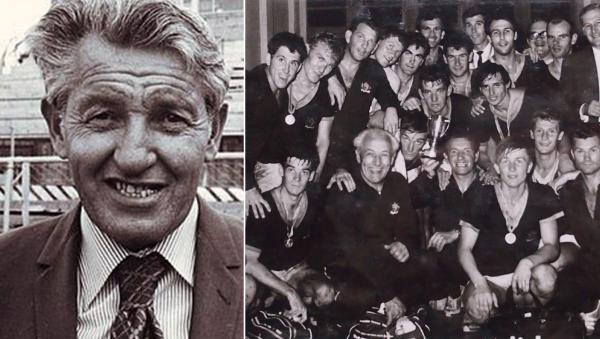
Players
Adrian Alston
An apprentice with Preston North End, Adrian Alston was recruited by South Coast United and immigrated to Australia in 1968. From 1969 to 1977 Alston played 62 games for Australia, 39 as full 'A' internationals, with a total of 17 goals. In the 1974 World Cup he particularly excelled at receiving and shielding long balls played out of defence, impressive given his East and West German opponents. In 2000, he was inducted into the Football Australia Hall of Fame.
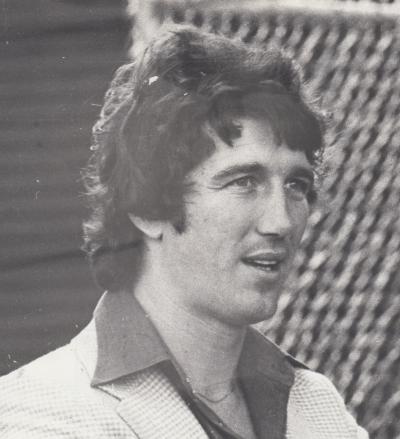
Attila Abonyi
Attila Abonyi’s distinguished international career included 88 appearances for Australia between 1967 and 1977, scoring 36 goals and playing more than 500 first grade matches. His skills were also recognised by English giant Manchester United, who invited him as a guest player in the last game of their 1975 Australian tour. After retiring, Abonyi switched to a coaching career at state and national level, assisting Frank Arok between 1985 and 1986 and in 1999 was inducted into the Football Australia Hall of Hame.
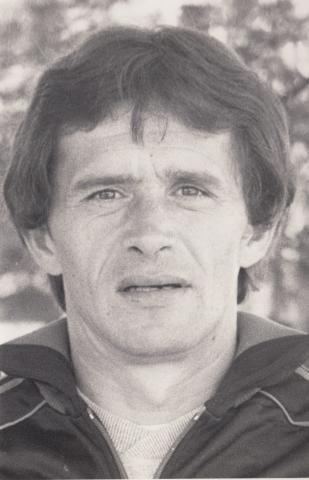
Ray Baartz
Ray Baartz was one of the nation's most talented attackers of all-time, whose seven-year international career included 59 national appearances and 21 goals. His playing days came to a sudden end in 1974 after a blow from a Uruguayan player ruptured an artery and caused temporary paralysis. Baartz was inducted in Football Australia’s Hall of Fame in 1999.
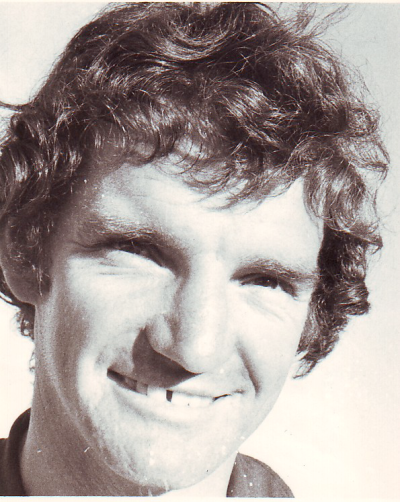
Bill Coolahan
William "Bill" Coolahan was a product of West Wallsend and made his Australia debut in 1938. He made a total of 12 appearances for the national team, with three of those coming as captain. In 1999 he was an inaugural member of the Football Australia Hall of Fame.
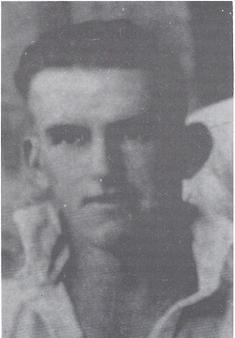
Ron Corry
Ron Corry was a high-class goalkeeper. He shared the keeping duties with Roger Romanowicz on the Asian tour in 1969 and his remarkable skills won him selection in every match in the 1969 World Cup qualifying series and in four matches in the 1973 campaign. He made 33 appearances for Australia, with 27 of those 'A' internationals and in 2000 was part of the Football Australia Hall of Fame class.
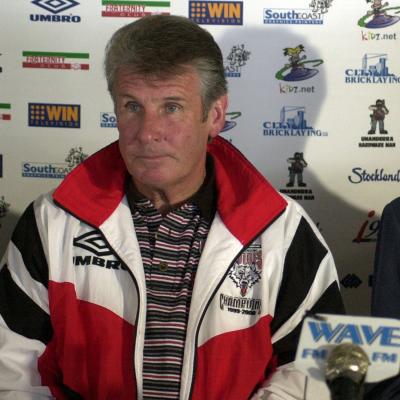
Alan Davidson
In 1980, Alan Davidson he toured Europe with the Subway Socceroos and was signed by English club Nottingham Forest. Davidson was a first team regular with Forest until back injuries affected his play. He represented Australia in three World Cup campaigns, the 1988 Olympic Games and was a key player in Australia’s 1988 Gold Cup Bicentennial win in Sydney. He retired as Socceroo captain after 76 matches, 50 of those as 'A' internationals and scored two goals.
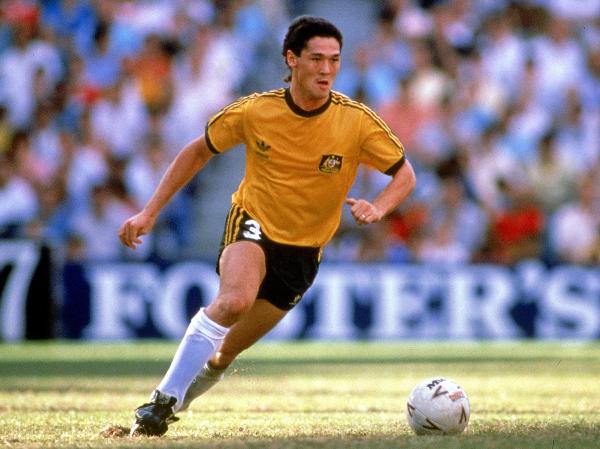
Frank Farina
Farina made his international debut for Australia as a substitute against China in Beijing in 1984 and went on to make 86 appearances for Australia, including 37 'A' internationals and 11 goals. In 1988, Farina switched to Club Brugge in Belgium to become the leading goal scorer in a successful European season. After three strong years in Bruges, Farina became the first Australia to ply his trade in Serie A when he signed for Bari in 1991. Towards the end of his playing career he ventured into managerial roles and became the head coach of Australia between 1998 and 2005.
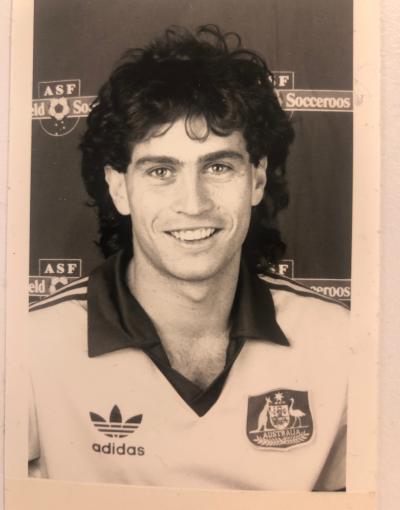
Alex Gibb
Alex Gibb’s most prominent honour was being the first captain of an Australian team - he skippered Australia on the national team's maiden tour of New Zealand in 1922, and in the return series in Australia the year after. This means he is officially Cap No.1 for the Australian men's football team.

Vince Grella
Making his international debut in 2003, Vince Grella would go on to accumulate 46 caps for the Subway Socceroos from 2003 until 2010, featuring at two FIFA World Cups as well as the 2007 Asian Cup. The defensive midfielder built a reputation of being a brilliant man-marker, able to nullify the involvement of influential opponents as well as break up play with his interceptions. Grella spent 10 years in Italy, most prominently at Empoli, Parma and Torino before moving to the English Premier League in 2008 to join Blackburn Rovers.
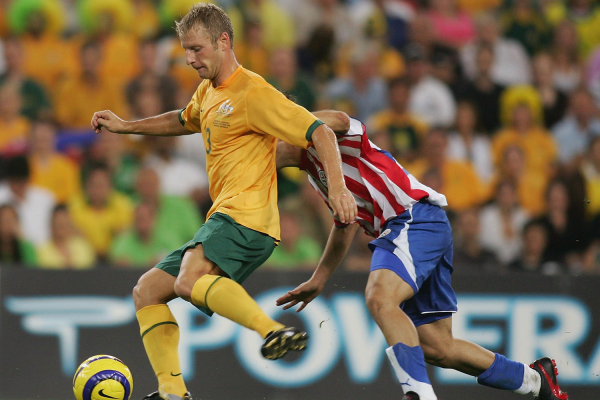
Stan Lazaridis
In 1999, Stan Lazaridis moved to Birmingham City where he became a fan favourite during his 191 appearances for the Blues. Lazaridis played 72 matches for the Subway Socceroos, including 60 'A' internationals, and was a member of the Aussie squad for the 2006 FIFA World Cup in Germany. Throughout his club career in England, Stan Lazaridis was one of the best known Australian professional football players in the English Premier League and Championship. He became a Football Australia Hall of Fame Inductee in 2010.
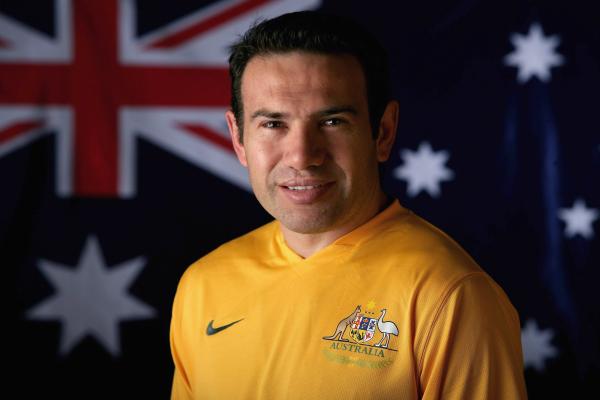
Jimmy Mackay
Arriving in Australia in 1965 on a working holiday, he joined Melbourne Croatia and helped the club win numerous honours. In 1972 he moved north to Sydney’s Hakoah and in 1975 returned south to South Melbourne Hellas. Selected for Victoria on more than 25 occasions, he began his national duty in 1970 and ultimately appeared 52 times for Australia until 1975, including at the 1974 World Cup. A highly effective defender with a calm demeanour, he also had the knack of scoring goals in big matches - including a famous stunner that sent Australia to our first FIFA World Cup.
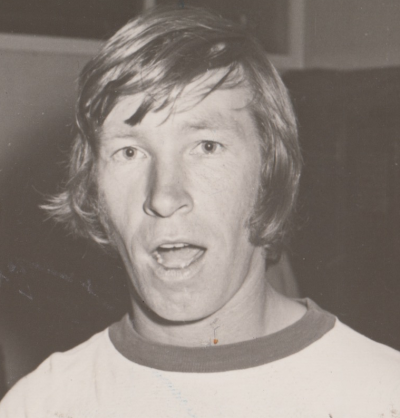
Paul Okon
Inducted into the Football Australia Hall of Fame in 2009, Paul Okon was a product of Australia’s ‘Golden Generation’. In 1991 he transferred to Club Brugge in Belgium from Marconi Stallions, helping the club to the first division championship in 1995/96 and cup wins in 1994/95 and 1995/96. He had three years with Lazio in Serie A and one with Fiorentina before moving to Middlesbrough in England. Due to injuries and unavailability his international career was limited to 37 appearances, including 28 full 'A' internationals.
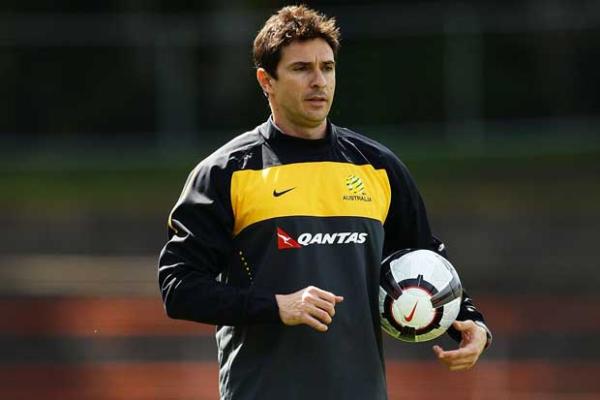
Tony Popovic
An imposing centre-back, Tony Popovic played 58 games for Australia and scored eight goals between 1995 and 2006. Beginning his career with Sydney United 58 FC, Popovic would enjoy notable overseas stints with Japanese outfit Sanfrecce Hiroshima and Crystal Palace in England. Following his retirement, Popovic has enjoyed a successful coaching career.
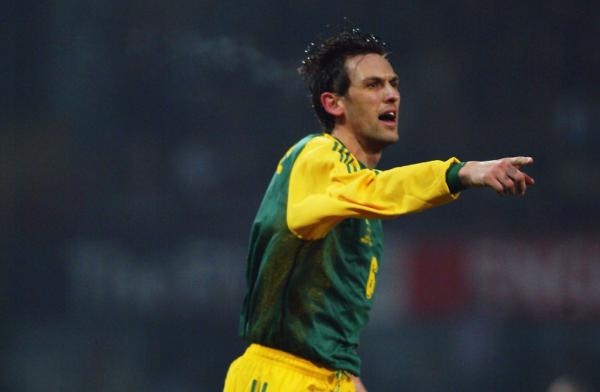
Ray Richards
Ray Richards’s international career began 1967 but blossomed from 1970 under coach Rasic, Richards played 60 times for Australia. He played his last game for Australia in 1975. A swashbuckling, no-frills player, he was the national team’s midfield destroyer - famously marking Pele with success during Santos' visit to Australia in 1972. Richards was inducted in the Football Australia Hall of Fame in 1999.
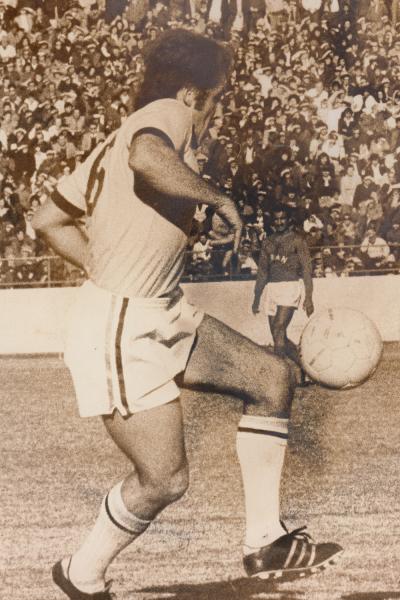
Robbie Slater
Following a successful domestic career, Slater played overseas with Anderlecht (Belgium), Lens (France) and English clubs Blackburn, West Ham, Southampton and Wolverhampton. In 1995 he won the English Premiership with Blackburn. He was the first Australian to have an English Premier League winner’s medal. He played in the 1997 FIFA Confederations Cup where Australia finished runners-up, losing to Brazil in the final. During his national career, he also won the Oceania Footballer of the Year Award in 1991 and 1993 and was runner-up in the Oceania Footballer of the Decade poll for 1988-1997. In 2005, he was named in the Football Australia Hall of Fame.
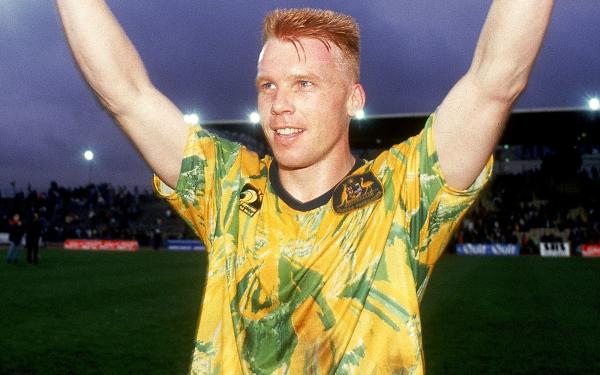
Paul Wade
Wade broke into the Australian team in 1985, playing his first full international against Czechoslovakia in 1986. He took over as captain from 1990-96. During his playing career, Wade made 345 national league appearances, 119 matches for Australia, 84 full internationals, and played in the Olympic Games and two World Cup qualifying campaigns. In 2000, he was a Football Australia Hall of Fame recipient.
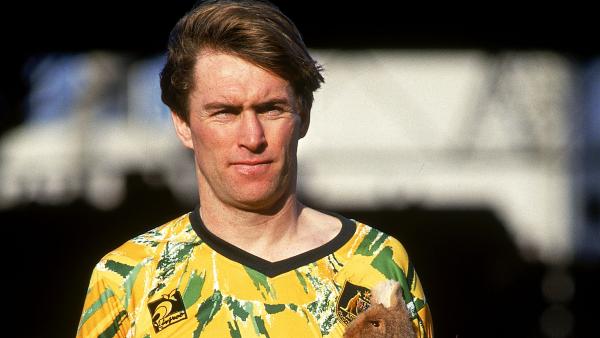
Harry Williams
Williams’ club form was so impressive that it took just six senior games for Australia Coach Ralé Rašić to select him in the 1970 world tour. In doing so he became Australia’s first Indigenous Socceroo, and his remarkable journey would ultimately lead him to take part in Australia’s first appearance at the World Cup finals in 1974. Williams notable career included 43 games for Australia, including 20 full ‘A’ internationals and a 1975 match against Manchester United in Sydney.
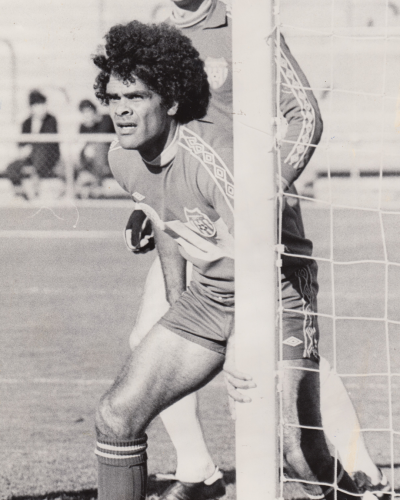
Charlie Yankos
During his national career, Charlie Yankos played 89 matches for Australia, including 49 'A' internationals. Yankos was known for his powerful free kicks, particularly his long-range goal that led Australia to a 4-1 win over Argentina in the Gold Cup final in Sydney in 1988.
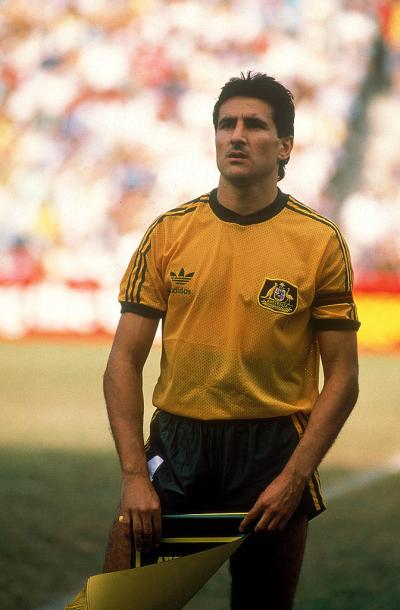
Ned Zelic
Born in Sydney, but raised in Canberra, Zelic was a graduate of the Australian Institute of Sport and later became a prolific professional football player. Ned played a total of 322 club league matches and scored nine goals. A Subway Socceroos representative from 1991 to 1997, he made 33 'A' international appearances and played a total of 40 matches for his country and scored three goals, including a goal against the FIFA World Stars at the opening of Stadium Australia in Sydney in 1999. In 2010, he was inducted in the Football Australia Hall of Fame.
